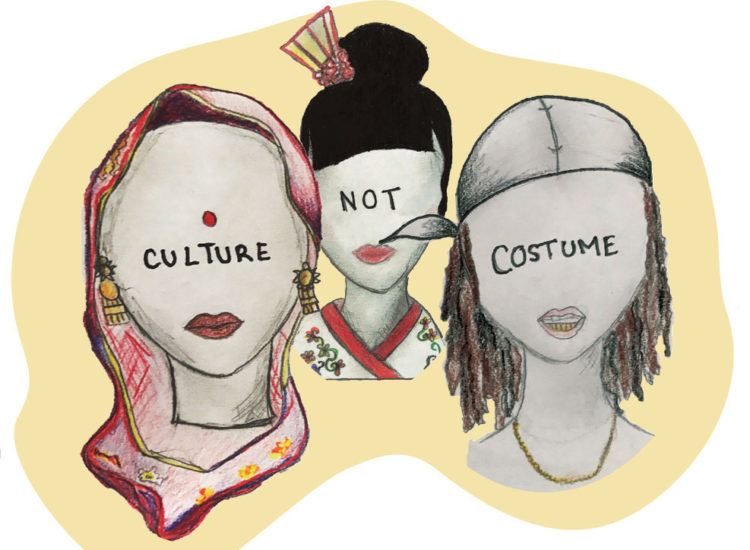Cultural appropriation negatively affects minorities
In America, where thousands of citizens originate from different cultures, it is not unusual to see aspects of these cultures stolen by those who do not truly understand their origins. While it is inevitable that these cultures will mix over time, there is a difference between appreciation and appropriation. When a member of a dominant culture “borrows” aspects of a minority’s culture with which they have no real connection, it is considered to be appropriation, while appreciation is expressed when someone who has a connection to a certain culture celebrates it. The line between the two can be confusing to those who are not properly educated of the issue, causing majorities to offend minorities time and time again, with no end to this pattern in sight.
Among the most impactful of these culprits are celebrities, who have an immense influence on the youth of America, and because of this, can teach young adults that it is okay to adopt a culture to make a joke or a fashion statement. Chris Hemsworth became one of these offenders in December 2015, when he dressed in the traditional dress of a Native American group originating in Canada. While this disappointed and angered many fans, Hemsworth took the step of admitting and apologizing for his ignorance.

“I was stupidly unaware of the offence this may have caused and the sensitivity around this issue. I sincerely and unreservedly apologise to all First Nations people for this thoughtless action,” he said in a statement released on Instagram on Oct. 27, 2016.
Many other public figures such as Madonna, Miley Cyrus, Kendall Jenner, Karlie Kloss and Katy Perry were accused of cultural appropriation for taking credit for dances that originated in the African-American communities, wearing a hijab as a fashion statement, and dressing up as a geisha. Some apologized for their wrongdoings, while others have yet to acknowledge the fault of their actions.
“If you’re going to adopt something from a different culture, just know the background behind it and don’t display it in a disrespectful manner,” senior Aaliyah Lewis said.
Other widespread culprits of appropriation are Halloween costumes. Every October, over 131 million teens and adults around the world begin buying costumes, oftentimes thinking of how the costume will look instead of the history behind it. With this kind of mindset, they may wear costumes depicting other cultures, such as a Native American headdress or a kimono, sending out a message of ignorance and disrespect of those who value that culture.
“When you dress up as a culture that you are currently oppressing, or have subjugated in the past, you’re not inventing anything, you’re just kicking them when they are down,” Susan Scafidi, author of Who Owns Culture?, said.

Junior Serenity White-Ilole, who believes that appropriation is the ultimate form of disrespect, said, “I think people who appropriate cultures should attempt to understand it first. It might just be a hairstyle or an item of clothing to some, but to those of that culture, it is seen as something sacred or ritualistic.”
In current day society, with racism visible in so many aspects of life, it has been found to be unjust to pick and choose parts of a culture that are favorable whilst rejecting the people who introduced that culture. This can sometimes be defended by claiming that minorities have borrowed from dominant cultures as well, however, these people do not realize the difference between taking part in a minority’s culture and joining in a majority. Diversity is a part of what America is said to be: the home of the free. The reality is, unique aspects of cultures can emphasize the difference between races, and therefore separate those trying to build a life of acceptance and hope.
“Immigrants with accents or people from other cultures who wear headscarves or traditional clothing that are not Western would find it very difficult to be accepted by a white dominant culture that will not only mock or make fun of them, but even blatantly discriminate against them,” Tiffanie Drayton stated in The Frisky.
Because majorities are called out for taking parts of a culture that do not belong to them, some individuals take offense and attempt to call out minorities for doing the same. Without a proper understanding of cultural appropriation, it could be difficult to realize that the two are not equal, and there is never a time during which it is seen as acceptable to take part of a culture from a minority that has been or is oppressed, taunted, or disrespected for celebrating that very culture.







